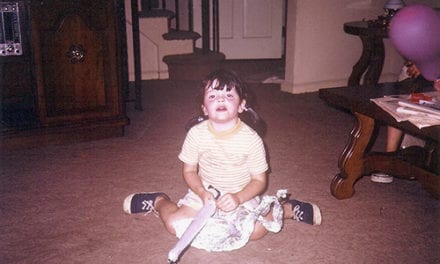Thumbs Up!
Having scoured articles and blogs galore, plus advice columns and rants on Facebook, Resnick knew it wasn’t meant to work this way. The key to Hollywood – to getting an agent, then hopefully making a living – was supposed to be networking, networking, and more networking.
Yet, despite being new to SoCal, and even newer to the movie biz, the kind of glad-handing that was advocated was anathema to him, ranking below schmoozing, hustling, and self-promoting.
Fortuitously, it was through basketball that one break after another started coming his way.
Having stumbled upon a weekly Saturday morning game at a Santa Monica park, Resnick quickly became a regular, warming up, playing for an hour or two, then heading home without saying much. One sunny day, however, another weekend jock caught up with him as he trudged toward the parking lot. “So how do you spend your time when you’re not ruining your knees and ankles?” asked the other guy, whose name was Marvin.
“Trying to get a foot in the door as a screenwriter.”
“Can I read something?”
“If you don’t mind my asking, why?”
“I’m an agent.”
Resnick dropped a script off at Marvin’s office on Monday afternoon, convinced he’d never hear another word, which promised to make the next couple of Saturdays awkward. But to his surprise, a call came in bright and early Wednesday morning. “Good stuff,” said Marvin.
“What’re you doing with it?”
“Not sure yet.”
“Nobody’s repping it?”
“I only just finished it.”
“Then you and I need to talk.”
Less than a month later, Marvin was the bearer of two pieces of news. First, there was an option offer, which meant that Resnick’s largely autobiographical script about growing up white in a predominantly black community would enable him to make the leap from wannabe to paid member of the movie biz (though not paid well enough to leave the crummy apartment where he was serenaded most nights by gunshots). Then came an even bigger surprise. A black writer had been hired to reverse the premise, making it a story about an African-American coming of age in a largely white world.
“Welcome to Hollywood,” said Marvin with a shrug.
The following week, Marvin called again. “Still in a state of shock?”
“What do you think?”
“Well, guess who’s got the perfect cure. Like watching movies?”
“Why did I choose this business?”
“Come on by this afternoon at 3.”
“This is Arthur Baron,” said Marvin, introducing Resnick to a distinguished looking silver haired man. “Mean anything?”
“Should it?”
“He’s the film critic at one of the trades.”
Seeing the blank look on Resnick’s face, Marvin turned to Baron. “Guess who’s new to Tinseltown.” Then he faced Resnick. “As in Variety, The Hollywood Reporter, and The Wrap.”
“I like that script of yours Marvin gave me,” Baron stated.
“Thanks.
“Every six months or so,” Marvin then explained, “Arthur and the editor get into a tiff that escalates to where he storms off until they both cool down, which usually takes four or five weeks.”
“So where do I fit in?”
“Marvin says you’re a basketball player.”
“Yeah.”
“You’ll sub for me until the editor and I kiss and make up.”
Resnick was stunned by the reception he got his first morning. Showing little gratitude or interest, the editor gestured toward a desk, then gave him an assignment, plus a promise that more would be forthcoming. As cold as that was, it was effusive compared to the chill from the other writers, not one of whom made the slightest effort to look up or say hello.
Undaunted, Resnick helped himself to a cup of green tea, then started work on the requested piece about Paramount’s upcoming slate.
An hour later, he brought a printed copy to the alcove where the editor sat behind a desk with a nameplate that read in bold: ED HALLAHAN, HONCHO.
“Trying to break land and sea speed records?” Hallahan asked.
“Beg your pardon?”
“Your fellow writers’ll think you’re showing ’em up.”
“The ones giving me the cold shoulder?”
Hallahan frowned. “Go Facebook for a while. I’ll let you know when there’s a screening, or maybe an interview you can do.”
Assuming his wait would be short, Resnick checked emails. When there was still nothing from Hallahan, he scrolled through Facebook. From there it was onto Google News, SB Nation, and other sites.
At noon, with no assignment having materialized, he addressed the other writers, “Anyone up for a burger? A pizza?”
When only silence greeted him, Resnick stood. “No thanks,” he announced to one and all. “I’ll pass on kale and quinoa if it’s okay with you. And no fish lips or squirrel snouts either.”
Stepping outside, he was surprised to hear the telltale sounds of someone shooting hoops.
Behind the building, he found a tattooed guy popping jumpshots on a basket in the parking lot.
“Want company?” Resnick asked.
“Ten-to-one you’re Baron-for-the-moment,” the guy said, tossing him the ball.
“Artie Resnick.”
“Joe Garcia. I’m guessing they didn’t make you feel at home.”
“That’s putting it mildly.”
“They’re all afraid the word’ll get out.”
“About?”
“How cushy they’ve got it. Not much bread, but perqs up the gazoo.”
“Perqs?”
“Swag. Tickets, wine, weekend trips, you name it. Rumor has it, once upon a time it was even coke and hookers. Soon as your name’s in the paper, you’ll see.”
“So, what do you do here?”
“When the guys ignoring you finish writing stuff that’ll never win a Pulitzer –”
“Yeah?”
“Me and my guys print it. Hungry?”
“Getting there.”
“Let’s shoot for ten more minutes, then hit a Thai joint I like.”
Never having attended a private screening before, Resnick was surprised to discover the etiquette, or lack thereof. Each of the other critics, he quickly discerned, had a schtick, which he would come to see repeated again and again. One heavyset guy was always either too hot or too cold. A woman with a penchant for multiple bracelets invariably demanded a glass of cold Pellegrino with no ice. A hipster with abundant piercings again and again insisted upon several newly sharpened #2 pencils. But what most defined those three and their peers, beyond a shared screening room pallor, was the suspicious way each and every one eyed Resnick, making him feel, once again, like an interloper.
Taking solace in the knowledge that there were worse fates than getting paid to watch a movie, Resnick settled back in his seat, as he would do each time thereafter.
Determined to prove his mettle, Resnick labored hard on his review of a tearjerker that in his private life he would never have sat through in its entirely. With an eye toward an uncharacteristic fairness, he underscored the film’s modest virtues without pounding either its syrupy nature or its overly convenient plot twists.
Satisfied with the finished product, Resnick brought a printed copy to Hallahan, who gave it a once-over, then nodded. “Once you email it to me,” he said, “might as well check out for the night.”
The next morning Resnick was surprised by how eager he was to see his name in print.
Foregoing the impulse to view the online version, he fought rush hour traffic in his funky Volvo, then instantly grabbed a print copy upon his arrival.
A minute later, he strode toward Hallahan’s desk.
“What?” asked the editor, without looking up.
“My review –”
“What about it?”
“For openers, it’s half the length.”
“We only have so much space.”
“You told me 1,500 words max, and I turned in 1,479.”
“What do you want me to do?”
Resnick took a deep breath. “You want something fiddled with? Tell me.”
“Hey, it’s not that different –”
“Except that every single criticism is gone. And a lukewarm review reads like thumbs up.”
Hallahan studied Resnick for several moments, then spoke. “Finished?”
“Not quite.”
“What else then?”
“Don’t make me sound illiterate.”
At noon, Resnick joined Joe Garcia, who was again shooting hoops out back.
“You were right about the swag,” he stated.
“What’d you get?”
“A bottle of Chateau Margaux and tickets to the Hollywood Bowl, plus a kick in the teeth.”
“From?”
“The ebullient editor.”
“Heard the saying, Don’t bite the hand that feeds you?”
“Sure.”
“Here, it’s more, Kiss the ass of those who pay the bills. When your advertising comes from studios and networks –”
Resnick swished a jumpshot, then again faced Joe Garcia. “So, what do I do?”
“Depends how long you want to stay. My suggestion? Find a happy medium.”
“Which means?”
“Something you can live with. How’s Korean sound for lunch?”
“Is it good?”
“There’s a dynamite soup called samgyetang.”
Resnick had barely returned from Koreatown when an attractive woman who looked to be in her mid-forties approached his desk. “Nice review this morning,” she stated with a smile.
“And you are?”
“Gigi Stansfield Marks.”
“Forgive my ignorance, but your relationship with the paper is?”
“Owner. It was started by my first husband, who, for the record, was significantly older.”
“Sorry, I –”
“No apologies necessary. Just keep up the good work.”
Though his position among the other writers remained that of an outsider, Resnick settled into a far from uncomfortable rhythm on the job. Mornings were generally spent writing short pieces that he wrote easily. Then came a session of hoops followed by lunch at one of the ethnic places favored by Joe Garcia – sometimes Oaxacan, occasionally Ethiopian, from time to time Thai, Shanghai, Korean, an Armenian place called Zankou, or some new inspiration.
Afternoons usually meant a screening, or if not an interview with a director, producer, or studio exec, few of whom proved to be interesting, or – in Resnick’s estimation – interested in making the kinds of films he cared about. Instead of filmmakers he would have loved to have met – Howard Hawks, Alain Resnais, Sam Peckinpah, Claude Sautet, John Cassavetes, or Sam Fuller – he was invariably stuck with either hacks making sequels or remakes, or alternatively those whose films featured stoners, buddy cops, or bombastic CGI.
For a while, thanks to gifts that kept arriving, Resnick’s evenings were amusing, with great seats at concerts and plays that, left to his own devices (and finances), he never would have considered attending.
Meanwhile, with each passing day came new lessons about how things worked, not only at the paper, but in the movie business as well. For all the power vested in Hallahan’s position as editor, the person who received the most attention – plus far and away the most gifts – was dapper Gregory Fields, whose column was equal parts gossip, celebrity sightings, puff about forthcoming releases, and plants about potential shifts in the executive suites at studios and networks. For the reviewers of film, TV, theater, and concerts, there was an unwritten law perpetuating a double standard. As Joe Garcia had mentioned, when it came to important advertisers, movies, stage plays, concerts, and festivals were treated gingerly. But non-advertisers – indie films, unknown comics, unsigned bands, or even magicians – provided a chance for writers to unleash their wrath.
That kind of venting Resnick chose to avoid.
His itch to spend time on something he cared about, another screenplay, grew stronger and stronger until, in addition to moonlighting whenever he had a night free from penning a review, he took to stealing away from the office as often as possible to make more progress.
The new tale, the antithesis of the market research-driven products he was reviewing, was inspired not by other movies, but by a stint in France writing the Paris section of a travel guide for the youth market.
Though Resnick remained apart from the other writers at the office, as days turned to weeks, a kind of peaceful coexistence emerged, and not merely between him and his supposed colleagues, but with Hallahan as well. While Resnick accepted being less caustic in his criticisms, Hallahan proceeded to leave his reviews more or less unscathed.
Only two people at work seemed to take an actual interest in Resnick. First and foremost was Joe Garcia, who offered companionship thanks to basketball and lunch. And it was he who pinpointed the other person.
“Looks like Gigi’s taken a liking to you,” Joe said over pastrami sandwiches on a foray to Langer’s on Alvarado.
“Think so?”
“Trust me.”
For Resnick, the attention from the owner, which progressed as days turned to weeks from an occasional greeting or word of praise for a review to ever more frequent chit-chat, went from surprising to flattering to perplexing.
“What’s it about?” Resnick asked Joe Garcia one Tuesday at a falafel joint.
“Time will tell,” Joe replied cryptically.
Two days later, Resnick was at his desk when Gigi approached. “I need a favor,” she said.
“Okay.”
“My current husband, known around here as the incumbent, is at a horse show in Texas.”
“And?”
“There’s a screening Saturday evening which I’d rather not attend solo. Up for joining me?”
“Sure.”
Friday morning Gigi popped by again. “About Saturday –” she said.
“Yeah?”
“Come by my place around 5 with a bathing suit. We’ll take a swim and have a little bite. That way, when the film’s over, we won’t be starved.”
With that, she handed Resnick a slip of paper with her address.
Never having explored where the other half lives, Resnick left his apartment on Saturday afternoon with enough time to cruise Bel Air before his designated arrival time. The homes he discovered, spacious with beautifully maintained grounds, bore zero resemblance what he left behind in industrial New Jersey.
Yet no dwelling or piece of land seemed as impressive as the one belonging to Gigi Stansfield Marks.
Self-conscious in a world of Jaguars, Ferraris, Rolls, and Teslas, Resnick steered his battered Volvo toward gate, then rang.
“Jean-Luc Godard,” he announced playfully when Gigi’s voice answered, then magically the gate opened.
“Welcome,” Gigi said, standing by the front door. She kissed Resnick on the cheek, then ushered him into the living room, which was unlike anything he had ever seen. Trying not to gape at the paintings, which, if his peripheral vision was not failing him, included a Matisse and a Rothko, he was led through the house and into the back yard, which housed a tennis court and an Olympic-sized pool.
“Why don’t you change in the pool house,” Gigi said, “while I throw on a bathing suit?”
Resnick headed toward the pool house, which proved to be larger and more comfortable than his apartment. Still ill-at-ease, he put on his trunks, then wandered toward the pool area.
Moments later, dressed in a long robe, out from the main house came Gigi, carrying a tray with a bottle of Dom Perignon and two flutes.
“Why not make this special.” Gigi said. Putting the tray on a table, Gigi adeptly opened the Champagne, then poured skillfully. “To indulgence?” she asked, handing a flute to Resnick.
“Sounds good.”
The two of them sipped in silence, then Gigi refilled the flutes.
“This may make swimming questionable,” Resnick said with a laugh.
“Good,” Gigi replied, opening her robe to reveal that she had nothing on underneath.
Though the two of them did eventually swim, they never quite made it to the screening.
Resnick spent much of Sunday morning thinking about the events of the night before. The rest of the day, in contrast, was spent speculating about the drama that might greet him upon his arrival at work on Monday.
Surprisingly, all the ruminating was for naught. Instead of strange looks or whispers, what greeted Resnick seemed no different than any other day. Hallahan stayed hidden in his alcove.
The other writers failed to acknowledge him. Even Gigi Stansfield Marks was her usual patrician self, bestowing a polite smile upon him while strolling by.
Perplexed, Resnick considered wandering over to the print shop to confer with Joe Garcia.
But instead he made a decision.
That evening, after a screening of a film by a writer-director whose worked he loathed, he sat down in front of his laptop and began to type.
If the word pretentious did not exist, he wrote, it would have been invented to describe yet another bloated and incomprehensible release by Terrence Malick. With portentous cinematography, plus over-inflated voice-overs signifying little, the new film – like his previous efforts – is a dimwit’s version of what “arty” and “meaningful” must be.
An hour later, Resnick hit Send, then joyfully uncorked the first bit of swag he’d received, the bottle of Chateau Margaux. For him, wine never tasted so good.
Arriving at work the next morning, Resnick found Joe Garcia waiting to give him a fist bump and a pat on the back. Then, jauntily, he strolled toward the writers’ area, where instead of being ignored, he found all eyes fixed on him.
Playing the moment for all he could, Resnick casually poured himself a cup of green tea, then stretched before taking a seat.
A moment later, time seemed to stop when Ed Hallahan strode toward him with a copy of the review in hand.
“You’re late,” Hallahan hissed.
“Nice to see you, too.”
“So, tell me this was a joke, willya? Kind of an April Fools in September.”
“Nope.”
“And that you’ve got a real review.”
“No.”
“Then what in hell do you call this?”
“Honesty.”
“You realize that if I hadn’t checked, this would be in the paper?”
“And?”
“And my ass! Unless you’re willing to write something usable –”
“As in fake –”
“I’m gonna have to call the studio and beg for another screening.”
“Or you could simply make something up. If, that is, you can figure out what the film was about.”
Hallahan glared. “Something tells me you’re not long for here.”
With everyone in the room watching, and others, including Joe Garcia, peeking around the corner, Resnick smiled. “That a promise?”
When, shortly thereafter, Hallahan left the office with a migraine, Resnick contemplated checking out as well. He was trying to decide between driving to Venice Beach for some local color and sun or heading to the San Gabriel Valley for regional Chinese food when inspiration hit.
Forty-five minutes later, he wandered into Joe Garcia’s part of the building. “If I email you a review,” he said, “can it somehow find its way into tomorrow’s edition?”
“You mean without crossing you-know-who’s desk?”
“Or getting you fired.”
“Let me give you an email address that’ll make it more or less anonymous,” Joe said. “Put someone else’s name on it, and it’ll run as a guest review.”
The next morning’s paper contained a rave of an indie film with not a single member of cast or crew who would be recognizable to the movie community. Signed Benny Profane, and detailing the hijinks of rebellious students at a high school in a New Jersey industrial town – each of whom bore the name of friends from a certain someone’s past – the review resulted in calls from companies inquiring about distributing rights. Each time Resnick gave the same response: “There’ll be an announcement soon.”
Though there were mumbles and rumbles about something fishy, particularly from Hallahan, who was back at work, popping countless aspirins, no one pushed very hard. The reason owed not to disinterest, but to the reality that nobody wanted to own up to the fact that they might have been had.
Only Joe Garcia brought it up over lunch with Resnick at a Salvadorean joint. “I love what you did, but where’d you get the idea?” he asked while munching on platanos.
“Current events.”
“Gimme that in English.”
“In high school history, every week we were supposed to speak about articles in the paper.”
“And?”
“Instead of talking about politics, or science, or the economy, I started in on abominable snowman sightings in Newark –”
“And?”
“Siamese triplets in Kazakhstan –”
“And?”
“A Russian new weapon, the Kaboolie bomb.”
Joe Garcia studied Resnick for a moment, then laughed so hard he nearly spewed food.
“Lunch is on me!”
For the two days that followed, Resnick got the silent treatment from Hallahan, which meant no morning puff pieces, no screenings, and no interviews. Far from daunted or chagrined, he used the time to make headway on his script-in-progress.
Then, at last, Hallahan approached before lunch. “Okay, last chance to save your ass. There’s a screening at 3.”
Had the film been fresh, interesting, or even moderately entertaining, Resnick might have been kind, or at least tolerant. But a ponderous tale that portrayed cops as the saviors of a crumbling society was too much for him to stomach.
A cinematic ode to fascism would be hard to bear under any circumstances, he wrote that evening. But when it’s devoid of character, charm, energy, or life, there’s no justification for the money spent, or for the two excruciating hours the viewer is forced to endure. Had this been an MGM release from once-upon-a-time, instead of the lion roaring, it simply would have shaken its head.
Once again, Joe Garcia was waiting for Resnick when he arrived at work. “I loved it,” he whispered, “but somebody else didn’t.”
“I bet you feel good,” Hallahan said sarcastically as Resnick approached him.
“Good? Nah. Try great!”
Without another word, Resnick turned and headed for the front door, not bothering to mention the call he’d received the night before from Arthur Baron, who was ready to return to the paper.
A month-and-a-half later, Resnick finished his script, which elicited nothing more than a shrug from producers and studios. Two weeks after that came word that, based upon the rewrite of his first screenplay, the project was being dropped.
A couple of painful weeks ensued, during which Resnick pondered whether a future in film was still possible.
Then, after one of several sleepless nights, an early morning call came from Marvin.
“I told some producers that you know all there is to know about Harlem playground basketball,” the agent said. “Please tell me that’s not a lie.”
Soon thereafter, saved by basketball once again, Resnick started work on a project that ultimately hit the screen with a better cast than he would have dared imagine. But, lest he fully enjoy the experience, the cable network that provided the financing chose to save a few dollars by filming not in New York, but in Canada, where the streets had to be dressed with litter.
As for the people from the trade paper, aside from an occasional lunch with Joe Garcia in the months that followed, the only one he heard from again was Gigi Stansfield Marks. She called out of the blue one evening to ask if Resnick would be willing to ghost write a paper for her college student daughter.
He graciously declined.





















